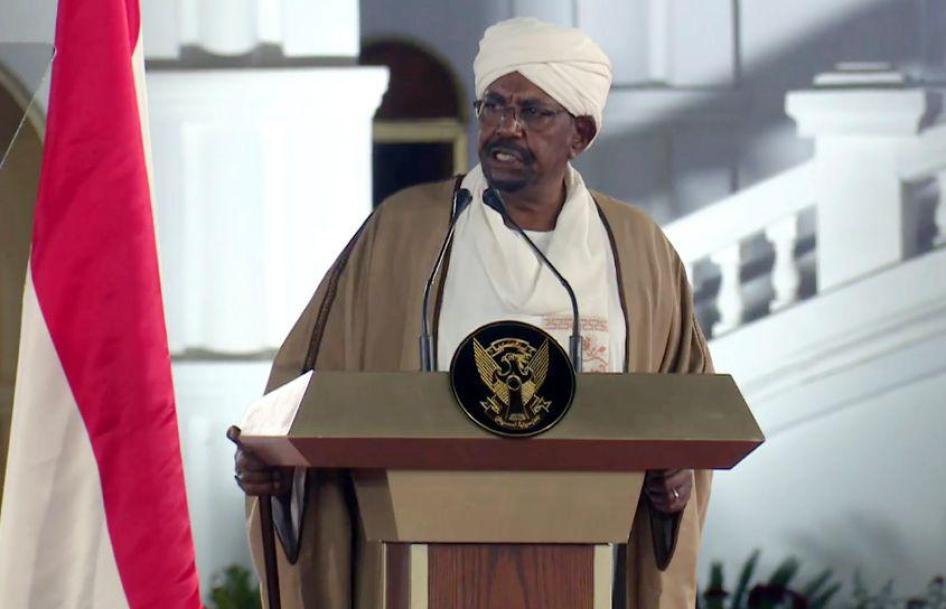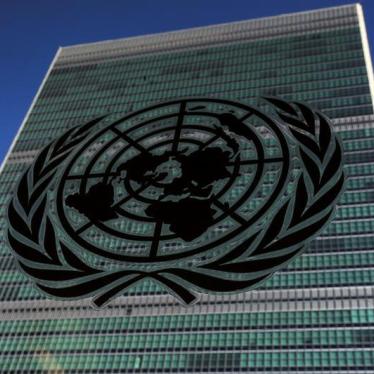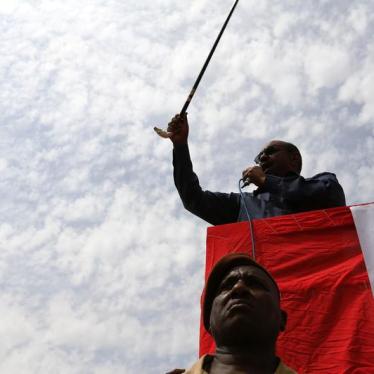(Tunis) – Tunisia should bar entry to or arrest Sudanese President Omar al-Bashir, who is a fugitive from international justice, Human Rights Watch said today.
A Sudanese news source reported on March 21, 2019 that al-Bashir intends to attend the League of Arab States summit, which will be held in Tunisia, a member of the International Criminal Court (ICC), on March 31. Al-Bashir is sought on two ICC warrants for alleged genocide, war crimes, and crimes against humanity committed in Darfur, Sudan.
“Tunisia should demonstrate its commitment to international justice by barring President al-Bashir or arresting him if he sets foot in the country,” said Elise Keppler, associate international justice director at Human Rights Watch. “Al-Bashir is an international fugitive who should be in The Hague to face the charges against him, not attending summits hosted by ICC members.”
A visit by al-Bashir would be the first time Tunisia had allowed an ICC fugitive on its territory since it joined the court in 2011. Allowing al-Bashir to visit without arrest would be a reversal of Tunisia’s commitment to support and cooperate with the ICC under the court’s Rome Statute.
At the ICC’s annual meeting of member countries in December 2018, Tunisia’s ambassador in The Hague expressed, “the firm commitment of Tunisia to the Rome Statute and unwavering support for the fight against impunity of the perpetrators of the most serious crimes of concern to the international community.”
While some ICC members have allowed al-Bashir on their territory, others have avoided such visits under their obligation to cooperate with the ICC, including by relocating or rescheduling meetings or asking Sudan to send other representatives to meetings. ICC members should urge Tunisia to take such action, Human Rights Watch said.
In 2009, Botswana and Denmark both signaled that al-Bashir risked arrest if he entered their territory. In 2012, Malawi relocated an African Union (AU) summit because of the AU’s insistence that al-Bashir should be allowed to attend the meeting if it took place in Malawi as scheduled. Al-Bashir canceled a visit to Zambia in 2010 amid calls for his arrest. He traveled to Nigeria in 2013, but abruptly departed amid public outcry and a complaint filed by activists for his arrest.
In 2017, Jordan welcomed al-Bashir to attend a League of Arab States summit. The ICC judges concluded that Jordan had defied its international obligations to arrest al-Bashir and sent its finding to the United Nations Security Council. Jordan appealed the decision, which is pending before an ICC appeals chamber.
In recent months, Sudanese government security forces have used excessive force against protests: shooting and killing dozens of unarmed protesters, beating and torturing them, and attacking hospitals treating them. Government forces have also attacked civilians in Darfur, despite government claims that the conflict there has ended. The longstanding impunity for human rights violations by authorities in Sudan has fueled ongoing brutality, Human Rights Watch said.
As an ICC suspect, the Sudanese president would receive the full range of protections under international law for people accused of crimes at the court.
“The ICC relies on its member states like Tunisia for cooperation in the surrender of suspects to be effective,” Keppler said. “Darfur victims, hundreds of thousands of whom have lived in refugee or displaced persons camps for well over a decade, deserve to see al-Bashir face justice at long last.”









